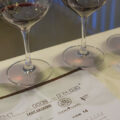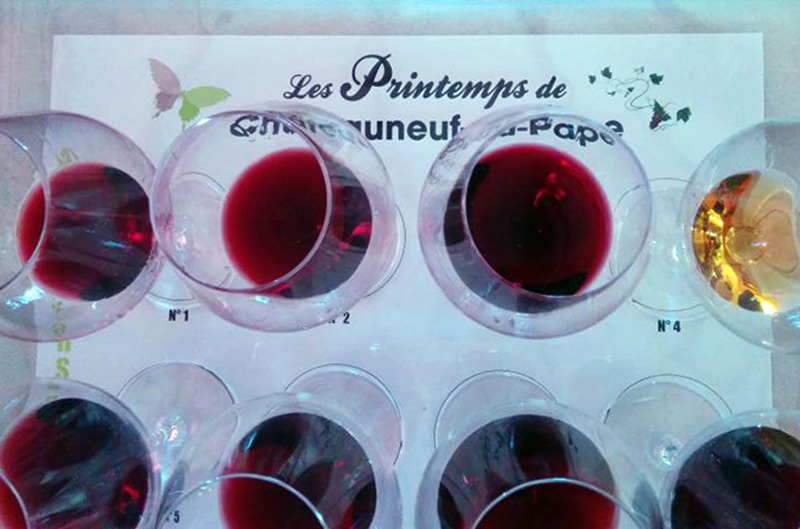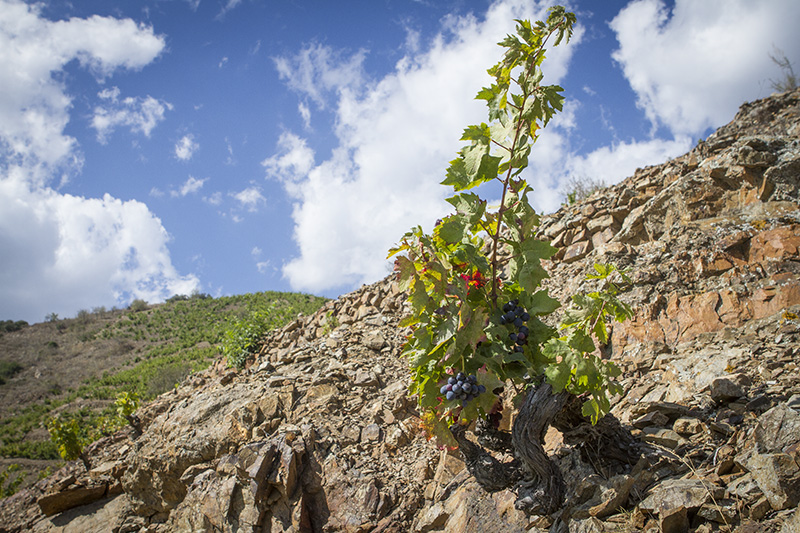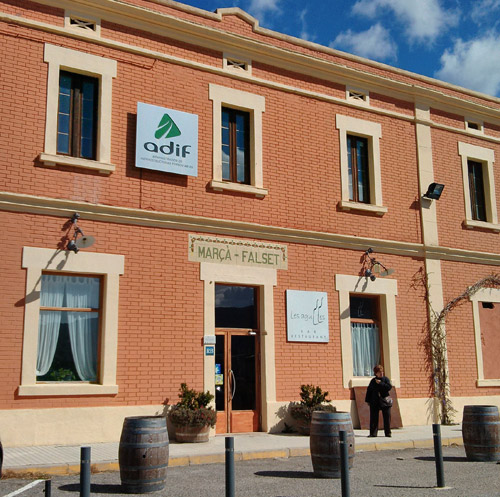
Having spent quite a bit of time in Priorat, blogging about it, and most importantly, drinking it, last Saturday I was invited to attend the 1st Cooperative Fair at the Castell del Vi museum in Falset and was of course very happy to head down to Priorat for the day. From the moment I arrived at the train station (yes, you can indeed take the train to Priorat from Barcelona), it felt good to be back in this beautiful wine country.
The idea of the fair was to showcase the cooperatives in the Priorat region, of which there are eight in total. For DOQ Priorat there are: Cellers Unió and Vinícola del Priorat. For DO Montsant there are: Celler Cooperatiu de Cornudella, Celler de Capçanes, Celler El Masroig, Cooperativa de Falset-Marçà, and Cooperativa de la Serra d’Almos. Then in the DOP Siurana (all the other cooperatives also produce Siurana oil) there’s Agrícola de Cabacés as something of an exception as they “only” produce oil and no wine.
Although I had already visited five of them personally and am familiar with the delicious oil produced by the Cabacés cooperative (there’s currently a large jug of it in the pantry), I was curious to taste the wines of the other two. Serra d’Almos was of particular interest as despite having spent quite a bit of time in Priorat, I had never even heard of it. As it turns out, their wines are quite good (at least as good as the other cooperatives), but they’re one of the smaller cooperatives in the area and, as I learned over lunch chatting with two of their members sitting next to me, they’re a bit weak on promotion and marketing. They admitted they should probably put more effort into it (their labels could use a redesign, for example), but don’t really have the capacity to do so as their production and resources are limited.
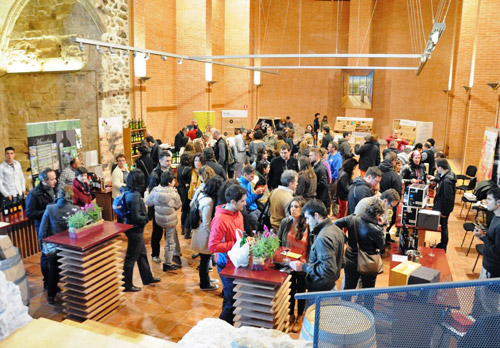
(photo courtesy of Castell del Vi)
The fair was a success in terms of attendance, as over 600 people came to the castle to taste wines, and in creating an attractive program that included an olive oil masterclass and a blind tasting of 8 wines. But I particularly liked their idea of inviting a few bloggers to create some buzz for the event and cover it (I even got a cool badge), but also to exchange ideas with members of the cooperatives during a communal lunch at Hostal Sport. In spite of producing quality products at affordable prices, one of the challenges of cooperatives such as these is to shake off their reputation for being cheap (as in, bad) and uncool. And while a couple of them have caught onto it by investing in modern websites, sleek label design and social media presence (namely, the Falset-Marçà, Capçanes and El Masroig cooperatives), the others still have a long way to go.
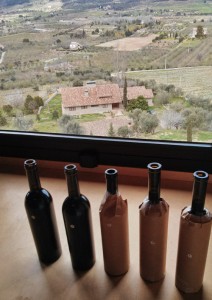 Considering that most of these cooperatives are at least half a century old (the Falset-Marçà one recently celebrated its 100th anniversary), modernizing them is not so easy. In the afternoon there was a debate about the future of cooperatives as a business model and someone pointed out that there are very few women or people under 40 in the board of all these cooperatives. I think it’s natural that people working in agriculture are more conservative in regards to change or innovation than people in other fields, as they are subject to the whims of the weather to make a living. But if they want to survive it’s clear that they have to invest in new ideas and long-term thinking, even if it might seem unclear how things like Facebook will impact on their sales. Tellingly, they only spent about two minutes in the hour and a half debate talking about enotourism. It’s hard to understand why so many wineries, small and big, are still reluctant to promote direct sales through visits as it seems obvious that it’s the most profitable way to sell their products and educate the public on their brand.
Considering that most of these cooperatives are at least half a century old (the Falset-Marçà one recently celebrated its 100th anniversary), modernizing them is not so easy. In the afternoon there was a debate about the future of cooperatives as a business model and someone pointed out that there are very few women or people under 40 in the board of all these cooperatives. I think it’s natural that people working in agriculture are more conservative in regards to change or innovation than people in other fields, as they are subject to the whims of the weather to make a living. But if they want to survive it’s clear that they have to invest in new ideas and long-term thinking, even if it might seem unclear how things like Facebook will impact on their sales. Tellingly, they only spent about two minutes in the hour and a half debate talking about enotourism. It’s hard to understand why so many wineries, small and big, are still reluctant to promote direct sales through visits as it seems obvious that it’s the most profitable way to sell their products and educate the public on their brand.
The big takeaway from this fair and also from our past enotourism experiences, is that more collaboration is needed to attract visitors and thus sales. Collaboration between wineries but also institutions such as Castell del Vi and hospitality businesses like Hostal Sport who hosted the communal lunch. To a large degree they’re already doing it, but more would be even better. In any case, kudos to Castell del Vi and the organizers of this fair for having brought together the most traditional of wineries and a group of smartphone–addicted bloggers that would probably die of starvation if having to grow our own vegetables. It was not only a fun event, but also very illuminating.
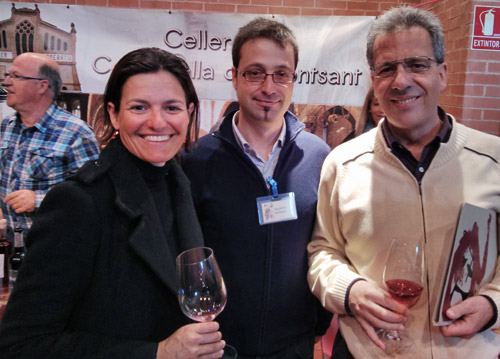
Marta Domènech of Hostal Sport, Rafel Pino of Celler El Masroig and a professor from the Jaume Ciurana enology school
